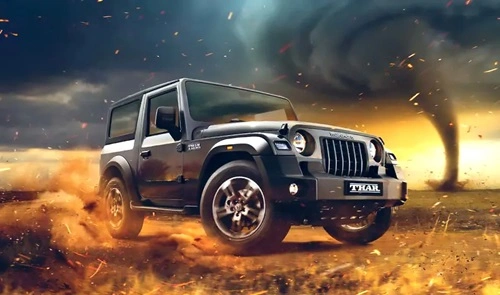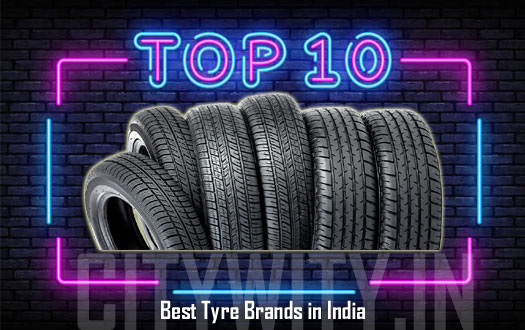The Mahindra Thar is an off-road icon in India. With its solid construction, versatile design, and potent engines, the Thar AX OPT is a true adventurer’s delight. For those eyeing this formidable machine, one question often emerges: Should you choose the diesel variant or the petrol version for your off-road adventures? This article explores the capabilities of both the diesel and petrol models to help you make the right decision.
Diesel Variant Engine Power and Performance

The Thar AX OPT Diesel has two engine options: the D117 CRDe and the mHawk 130 CRDe.
1. D117 CRDe
This 1,497cc engine delivers 87.2 kW of power at 3,500 rpm and an impressive 300 Nm of torque between 1,750 and 2,500 rpm. Its strength lies in the low-end torque, allowing you to easily tackle steep inclines, rocky trails, and other demanding terrains. This variant is ideal for moderate off-road adventures, coupled with a 6-speed manual transmission and a rear-wheel-drive (RWD) system.
2. mHawk 130 CRDe
This 2,184cc engine packs more punch, generating 97 kW of power at 3,750 rpm and the same 300 Nm of torque but across a broader range of 1,600 to 2,800 rpm. This engine comes with a part-time 4WD system with high and low reduction gears, making it a versatile choice for extreme off-road enthusiasts.
Petrol Variant Engine Power and Performance
The petrol-powered Thar AX OPT features Mahindra’s mStallion 150 TGDi engine. This 1,997cc turbocharged petrol engine churns out a solid 112 kW of power at 5,000 rpm and 300 Nm of torque from a low 1,250 rpm, extending up to 3,000 rpm.
The petrol engine’s quick throttle response and refined performance make it a thrill-seeker’s dream, offering a spirited drive whether you’re navigating trails or cruising on highways. Like the mHawk 130 Diesel, it also comes with a part-time 4WD system, ensuring it can handle challenging terrains.
Off-Road Capability
The Thar AX OPT is designed for adventure, regardless of the engine under the bonnet. Both diesel and petrol variants share Mahindra’s third-generation body-on-frame construction, renowned for its durability and ability to withstand punishing terrain. With independent double-wishbone front suspension and a multilink solid rear axle, the Thar AX OPT offers a stable yet flexible ride over uneven surfaces.
Diesel for Off-Road Dominance
The diesel models, particularly the mHawk 130, shine in extreme off-road scenarios. The availability of high and low-reduction gears ensures maximum torque at low speeds, which is essential for tackling steep climbs, rock crawling, or deep mud. Additionally, the diesel’s fuel efficiency and consistent torque delivery make it a reliable companion for long-distance adventures in remote areas where refuelling might be a challenge.
Petrol for Versatility
The petrol variant excels in versatility. Its smooth acceleration and higher power output make it more agile on less demanding trails and city roads. The broader torque band ensures that you don’t need to work the engine too hard to get the desired performance, making it an excellent choice for those who want a mix of off-road fun and daily usability.
Fuel Efficiency and Cost Considerations
Fuel efficiency is critical when comparing the diesel and petrol Thar AX OPT models. Diesel engines typically offer better mileage than petrol engines, especially in low-speed, high-torque scenarios common in off-road driving. This can translate to lower running costs over time, especially for those who plan extensive use in rugged conditions.
The initial cost of a diesel vehicle tends to be higher than its petrol counterpart. If your off-road adventures are occasional and your driving mainly involves urban or highway commutes, the petrol variant might be the more economical choice.
The Driving Dynamics and Comfort
The diesel and petrol Thar AX OPT variants are equipped with hydraulic power steering, providing precise control during off-road manoeuvres. The vehicles also feature advanced braking systems with ABS, EBD, and brake assist, ensuring safety even in tricky situations.
The diesel models, especially the mHawk 130 with 4WD capabilities, feel more robust and grounded on challenging trails. The heavier engine contributes to better grip and stability, which can be advantageous on loose or uneven surfaces.
On the other hand, the petrol variant’s lighter engine and refined power delivery result in a more responsive driving experience. The petrol engine is quieter than its diesel counterparts, adding comfort during long drives.
Safety Features
Mahindra has ensured that the Thar AX OPT offers top-notch safety, regardless of the engine choice. Standard features include dual airbags, ABS with EBD, brake assist, and a roll cage. Additionally, the D117 RWD diesel variant includes ESP with roll-over mitigation, hill hold, and hill descent control, providing added peace of mind when navigating steep inclines or descents.
Who Should Choose the AX OPT Diesel?
The diesel Thar AX OPT is ideal for:
- Hardcore off-road enthusiasts who demand maximum torque and reliability in extreme conditions.
- Long-distance travellers who frequent remote areas where fuel efficiency and endurance are paramount.
- Those who prioritise low-speed torque and ruggedness over outright speed.
Who Should Choose the AX OPT Petrol?
The petrol Thar AX OPT is best suited for:
- Drivers seek a versatile SUV that performs well on trails and in urban settings.
- Enthusiasts who enjoy a spirited driving experience with quick acceleration and refined power delivery.
- Individuals who prioritise a lower upfront cost and easier maintenance.
In Conclusion
Choosing between the Thar AX OPT diesel and petrol variants ultimately depends on your intended usage. With its body-on-frame construction, exceptional suspension system, and reliable braking setup, the Thar ensures a safe and thrilling journey, no matter where the adventure leads. Both versions of the Thar AX OPT are packed with features that ensure exceptional off-road prowess. Whichever variant you choose, one thing is certain – the Thar guarantees a thrilling and unforgettable adventure, no matter the challenges.

